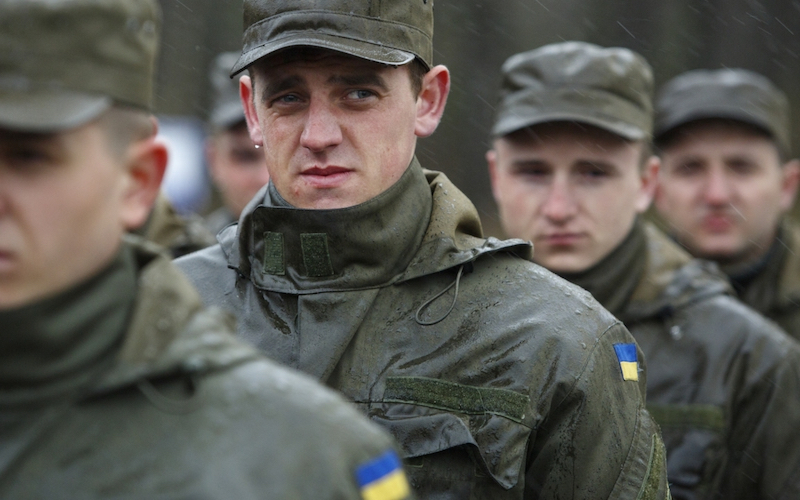
The Ineffectual Minsk Protocols: An Absence of Diplomatic Leadership
The most pressing conflict in US-Russia relations is not Syria, but rather the border between Ukraine and Russia. The disputed territory that has been a source of international consternation is the key detriment to fomenting peaceful and prosperous relations between the former Cold War adversaries. Vladimir Putin and Donald Trump’s future negotiations will achieve nothing if the Ukrainian territorial dispute is not solved. In retrospect, the Russian-Ukrainian relationship has always been important for the Kremlin because of Russia’s military and foreign policy preoccupation with Black Sea security. No steps forward can be achieved if the post-Soviet status quo remains one where the Kremlin continues exercising its “frozen conflict” doctrine to tip the international security balance against the West and NATO.
Currently two separate Minsk agreements were formally agreed to, but neither provided the essential language and monitoring mechanisms to ensure the agreements were properly and equitably implemented. Furthermore, Ukrainian separatists and the Ukrainian military have continued skirmishes resulting in deaths without a proper ceasefire. Any attempt at a ceasefire has been fruitless.
The de facto situation on the ground makes it clear that a new approach to diplomacy is needed. The Russian media has portrayed the situation as Russia saving Ukraine from the domination of the violent Ukrainian ultranationalists founded by Stepan Bandera, while Ukraine and the Western media have claimed that Russia seeks to compromise Ukrainian sovereignty in an attempt to stop it from joining Western collective political and defense alliances. The castigation and denigration of opposing sides seem to be continuing in perpetuity.
The situation quickly escalated after President Viktor Yanukovych, the Kremlin’s hand in Ukraine, was ousted in a coup because of accusations of corruption and malfeasance. The starting point for his ouster was when Yanukovych acquiesced to the Kremlin’s wishes that he veto a trade accord between Ukraine and the European Union. The Kremlin sought to capitalize on the internal disorder by dispatching political and military aid against the protestors and propping up Ukrainian separatists who were ethnically and culturally Russian. All attempts at a ceasefire in the last three years were without resolution. The OSCE attempted to monitor the ceasefire, but it could neither mediate, nor ameliorate the situation as a human rights and security watchdog organization.
The United Nations has played nearly no role in these negotiations, and it would be wise for participants to establish a proper role for United Nations Peacekeeping forces in the region. The Kremlin still views the post-Soviet space as part of its regional hegemony, and the notion that the OSCE, an organization with a questionable record in this conflict, will resurrect the quest for peaceful relations remains dubious. The violence and disorder in Donbas and Donetsk continue to plague the disputed territory. Furthermore, the OSCE group that is involved in the negotiations of the Nagorno-Karabakh conflict has yet to produce any peacekeeping or diplomatic victories. The Armenia-Azerbaijan situation can be viewed as a harbinger of the OSCE’s prowess in diplomacy and peacekeeping in the Russian-Ukrainian territorial dispute.
A new American presidential administration and a new UN Secretary General can reinvigorate the lackluster peace process by creating a forum and negotiating protocol that will provide closure to Ukraine and Russia. It can build on the inefficacies of the second Minsk protocol. In the mission to resurrect the negotiations, the international community must begin negotiations under the auspices of the UN Peacekeeping forces, determine that the territorial demarcation line become a compromise and clear collective decision by all participants, and properly implement a ceasefire. These three ingredients are the keys to solving the diplomatic gridlock. The United States should begin a diplomatic channel with Russia specifically in regard to this issue. No solution to a conflict in the post-Soviet space will ever be achieved and implemented without Russia, the regional hegemony. A new approach with specific attempts to rectify the failed Minsk protocols by filling in the gaps under the auspices of the United Nations may end this conflict, but it must receive new energy by the United States and Russia individually and bilaterally.

